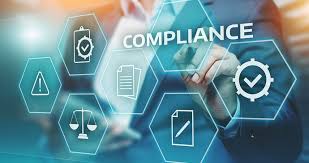Ethics and Compliance Trends: Humans and Automation, Intelligence and Technology

For me, the year-end retrospectives have become a rite of passage. While there has been modest changes and trends in the enforcement arena, I am amazed each year at the pace at which compliance as a discipline and a profession continues to move forward.
While there is much that is written about compliance and current or immediate trends, in reality, on the ground, compliance as a force moves relatively slowly. This has nothing to do with the value or the commitment of companies to compliance but a more important and overriding influence – companies are slow to change (unless forced to do so by government or strong economic factors).
In my old/mid-life age range and perspective, I have become more realistic about the pace at which change can occur. Corporations are slow to move, akin to a large ship changing direction. It is unfortunate but part of reality that companies have strong internal and external forces that can slow change advocates or managers.
Within this “realistic” framework, compliance continues as a pace setter in the corporate governance landscape. Many companies maintain deficient ethics and compliance programs. As a result, compliance professionals are in high demand since corporate leaders frequently embrace compliance as an important objective among competing priorities.

At the same time, the market is responding to compliance needs, especially in the design of automated compliance-focused technologies. Some may scoff at the continuing focus of compliance on technology. After all, compliance is a function that ultimately depends on humans and interpersonal relationships. For example, the risk of whistleblower retaliation has little to do with technology or automated solutions and everything to do with people-to-people treatment, motivations and ultimately the company’s culture.
Corporate compliance now is tracking along two trends – one that emphasizes the company’s culture, meaning the company’s adoption, communication and adherence to a code of ethical strictures guiding day-to-day activities.
In parallel, CCOs are seeking efficient technologies and automated solutions marketed by vendors with quickly advancing platforms and technical capabilities to promote and ensure compliance.

These two themes are not competing nor mutually-exclusive. They work in tandem and reinforce each other. A company’s culture is insurance against corporate misconduct – and in the end, a culture of ethics creates sustainability and an environment in which companies can increase profitability. A corporate compliance program that is organized around effective technologies will minimize costs, promote efficient solutions and maximize compliance given a set of resources.
This past year companies continued to focus on the value of their corporate cultures. Corporate leaders have identified the need for promoting corporate culture, not just to avoid potential government enforcement actions, but as a separate goal meant to achieve optimal performance. Ethical companies perform better in the marketplace than unethical companies. Corporate leaders now recognize this important reality and are now demanding that corporate compliance officers assess and supervise the company’s culture.
Meanwhile, the compliance industry is monitoring and embracing technological solutions to manage third-party risks, promote policy management, administer hotlines, generate and monitor compliance data, and manage its supply chain. In an interesting phenomenon, technology is bring together business and compliance interests, meaning that technology assists both the company’s business operations and its related compliance functions.

As a result, companies are embracing artificial intelligence, blockchain and regtech solutions that are built on powerful computer capabilities and processes. New technologies offer expansive capabilities to search large amounts of data, implement machine-learning solutions, and generate large amounts of data that may facilitate proactive identification of financial and behavioral anomalies.
Without too much hyperbole, compliance is steadily evolving and will ultimately advance corporate governance functions. Corporate innovations occur regularly with new products and services, and compliance is an important influence in this process. As time passes, and more resources are allocated to compliance, the corporate governance landscape may radically change over the next five years. In other words, buckle up, we are in for an interesting ride.














